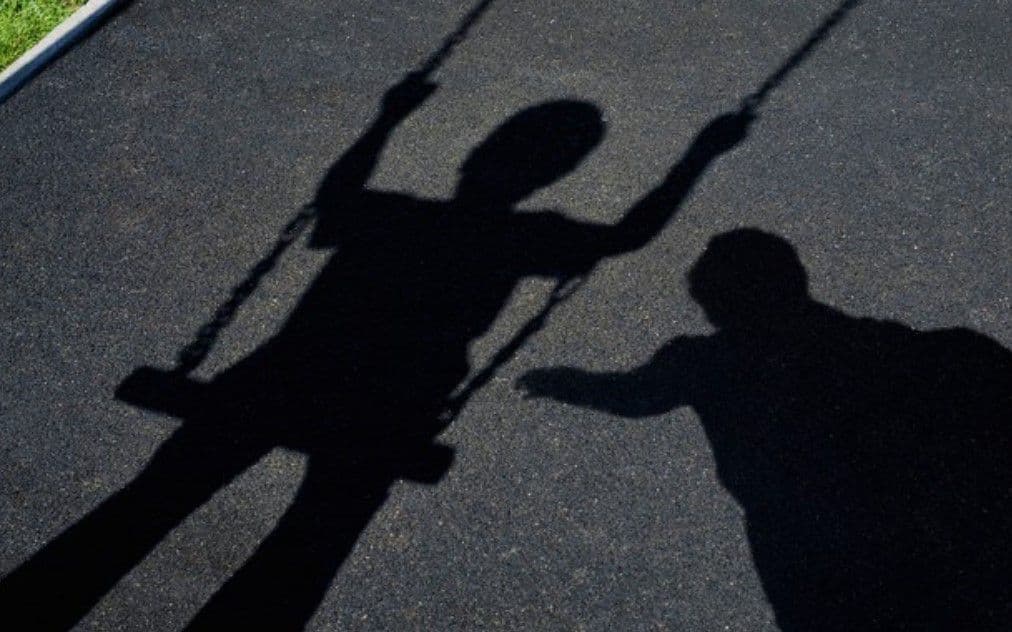Sports
Authorities Face Criticism Over Child Predator Registry Inefficiencies

A recent report reveals significant shortcomings in the management of a child predator registry in Montenegro, which currently lists 114 individuals. This figure represents a concerning increase from 98 registered offenders when the registry began operations in August 2022. The registry aims to monitor individuals convicted of sexual crimes against minors, yet critics argue that effective oversight remains largely unaddressed.
The Criminal Code of Montenegro mandates specific monitoring requirements for convicted pedophiles, including mandatory reporting to local police units, restrictions on visiting areas frequented by children such as schools and playgrounds, and obligations to notify authorities about changes in residence or employment. However, enforcement of these measures has not been adequately implemented since the registry’s inception.
In a statement to the media, the Ministry of Justice confirmed that on July 10, 2023, it provided approval for a proposal regarding the notification process for offenders. The Ministry of Internal Affairs indicated that the regulations governing this process came into force on July 31, 2025. Yet, questions remain about the overall strategy for monitoring offenders and ensuring they do not reside near schools or playgrounds. The Ministry has expressed concerns that the legislative framework for these monitoring measures is vague and incomplete, complicating the execution of necessary oversight.
In February 2023, the Psychiatric Clinic reported that it had not recorded any interventions related to the treatment of pedophiles, indicating a lack of integration between institutional systems. This suggests that critical data sharing among law enforcement and health agencies is insufficient, raising alarms about the potential risks posed by unmonitored offenders.
Despite the registry’s existence, parents and advocacy groups are voicing their concerns. Kristina Mihailović from the Parents’ Association commented on the ineffective implementation of the registry, emphasizing the importance of ensuring that educational institutions verify the backgrounds of employees who work directly with children. She highlighted a troubling incident involving a convicted offender who, after serving time for assaulting a minor, was charged again but faced only misdemeanor penalties due to insufficient checks.
“Such lapses in oversight have allowed individuals previously convicted of serious offenses to evade adequate scrutiny,” Mihailović stated. She further noted that the justice system often resorts to minimal sentencing for sexual crimes against children, which undermines the effectiveness of the Criminal Code.
The Ministry of Sports and Youth has yet to respond to inquiries regarding measures taken to protect children involved in sports activities, further highlighting gaps in safeguarding protocols. The Human Rights Ombudsman has also pointed out the lack of clarity surrounding the safety of children participating in various sports, urging the Ministry to reevaluate current regulations to ensure comprehensive protections are in place.
The Criminal Code clearly defines a range of offenses, including sexual harassment, rape, and child exploitation, with penalties ranging from six months to long-term imprisonment, depending on the severity of the crime. Despite the framework for monitoring offenders, the lack of proactive measures raises significant concerns about child safety.
Although the registry was established after a 15-year delay following Montenegro’s commitment to the Council of Europe’s Convention on the Protection of Children from Sexual Exploitation and Sexual Abuse, its effectiveness remains in question. The Ministry of Justice has previously stated that all organizations working with children are required to check the registry before hiring staff. Yet, data indicates that only 12 inquiries were made to the Ministry of Justice from the registry’s launch until January 17, 2024, all originating from primary schools.
As the registry continues to operate, the pressing need for improved coordination among institutions and stricter enforcement of existing laws remains evident. The protection of children must be prioritized, with clear measures in place to prevent further incidents and ensure that offenders are adequately monitored within the community.
-

 Entertainment3 months ago
Entertainment3 months agoAnn Ming Reflects on ITV’s ‘I Fought the Law’ Drama
-

 Entertainment4 months ago
Entertainment4 months agoKate Garraway Sells £2 Million Home Amid Financial Struggles
-

 Health3 months ago
Health3 months agoKatie Price Faces New Health Concerns After Cancer Symptoms Resurface
-

 Entertainment3 months ago
Entertainment3 months agoCoronation Street’s Carl Webster Faces Trouble with New Affairs
-

 Entertainment3 months ago
Entertainment3 months agoWhere is Tinder Swindler Simon Leviev? Latest Updates Revealed
-

 World2 weeks ago
World2 weeks agoBailey Announces Heartbreaking Split from Rebecca After Reunion
-

 Entertainment4 months ago
Entertainment4 months agoMarkiplier Addresses AI Controversy During Livestream Response
-

 Entertainment2 weeks ago
Entertainment2 weeks agoCoronation Street Fans React as Todd Faces Heartbreaking Choice
-

 Science1 month ago
Science1 month agoBrian Cox Addresses Claims of Alien Probe in 3I/ATLAS Discovery
-

 Health4 months ago
Health4 months agoCarol Vorderman Reflects on Health Scare and Family Support
-

 Entertainment4 months ago
Entertainment4 months agoKim Cattrall Posts Cryptic Message After HBO’s Sequel Cancellation
-

 Entertainment3 months ago
Entertainment3 months agoOlivia Attwood Opens Up About Fallout with Former Best Friend





















